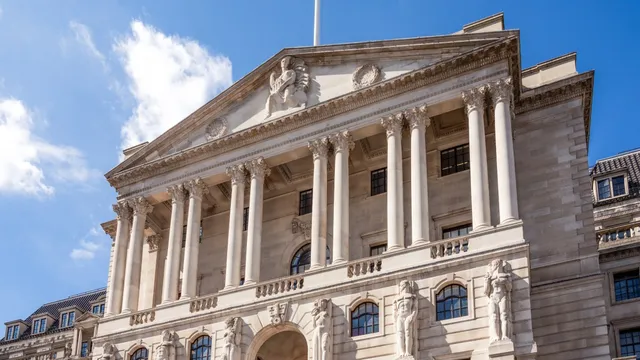
Bank of England delays bond auction amid market turmoil
2025-04-10 18:40- The Bank of England has canceled its planned auction of long-dated government bonds worth £600 million due to recent market volatility.
- The decision to postpone reflects concerns over President Trump's tariff policies, which have created uncertainty in the markets.
- In response, the central bank will instead conduct a sale of £750 million in short-dated bonds, indicating a shift in their approach during this tumultuous period.
Express your sentiment!
Insights
In the United Kingdom, recent market volatility has prompted the Bank of England to make significant changes to its bond auction plans. On April 11, 2025, the central bank announced it would halt an auction of £600 million in long-dated government bonds. This decision was made in light of the uncertainty caused by President Donald Trump's tariff policies, which have led to widespread market jitters. Instead, the Bank of England will redirect its efforts to offload £750 million of short-dated bonds rather than proceeding with the previously planned sale of long-dated bonds. The central bank's move marks a significant step as it becomes the first among major central banks to respond to these mounting uncertainties linked to tariffs and their implications for economic stability. The Bank of England has been in the process of unwinding its quantitative easing programs. This started after the financial crisis of 2008, when many central banks, including the Bank of England, purchased large amounts of sovereign and corporate bonds to stimulate economic growth. As international trade dynamics shift due to trade policies implemented by the Trump administration, central banks are forced to navigate increasing risks and ensure that financial markets remain stable. The halted auction is not only a reflection of current market conditions but also raises questions about future monetary policies and the paths that central banks may take amid global uncertainties. The existing financial strategies from the past decade are being reassessed as central banks adapt to a more volatile economic environment. Ultimately, the actions of the Bank of England may set a precedent for how other central banks respond to political and economic challenges. By modifying their bond sale plans, they signal to the market their awareness of the risks posed by external factors such as tariffs and trade policies. This highlights the interconnectedness of global economies and the profound effects that political decisions can have on market stability.
Contexts
The impact of Donald Trump's tariffs on global markets has been profound and multifaceted, reverberating across various sectors and economies worldwide. Initiated in 2018, these tariffs were primarily aimed at China, aimed at addressing perceived trade imbalances and protecting American industries from what was seen as unfair competition. The immediate effect was a shift in import costs, leading to increased prices for consumers in the U.S. While these measures were intended to bolster domestic production, they also resulted in retaliatory tariffs from affected countries, creating a cascading effect on international trade relations. This tit-for-tat escalation created uncertainty and volatility in global markets, leading to a pronounced slowdown in trade growth during the subsequent years. As industries adjusted to the new economic landscape, some sectors experienced short-term gains while others suffered setbacks. U.S. manufacturers in certain industries, such as steel and aluminum, initially benefited from protectionist measures, as domestic prices rose due to reduced foreign competition. However, many businesses reliant on imported materials faced increased costs, leading to higher consumer prices and squeezed profit margins. This phenomenon culminated in a complex interplay between sectors, resulting in an uneven impact on the economy, where beneficiaries in some industries barely offset losses in others. Moreover, the tariffs prompted a reevaluation of global supply chains. Companies began reassessing their sourcing strategies, with many looking to diversify away from Chinese suppliers to avoid tariffs. This shift has led to increased investment in alternative markets and a restructuring of global production networks. While some countries have seized the opportunity to enhance their export capabilities to the U.S. market, others found themselves disadvantaged by the sudden disruptions caused by trade policies. This has underscored the interconnectedness of modern economies, illustrating how protectionist measures can lead not only to localized benefits but also to broader adverse consequences in international relations and market stability. In summary, the impact of Donald Trump's tariffs on global markets extends beyond immediate trade figures, influencing long-term economic relationships and strategies worldwide. As businesses continue to navigate the complexities introduced by these trade policies, the effects will likely be felt for years to come, emphasizing the need for a measured approach to trade that balances protectionism and globalization. Understanding these dynamics is crucial for policymakers and business leaders in anticipating future trends in international trade and developing strategies that can withstand the uncertainties of an evolving economic landscape.